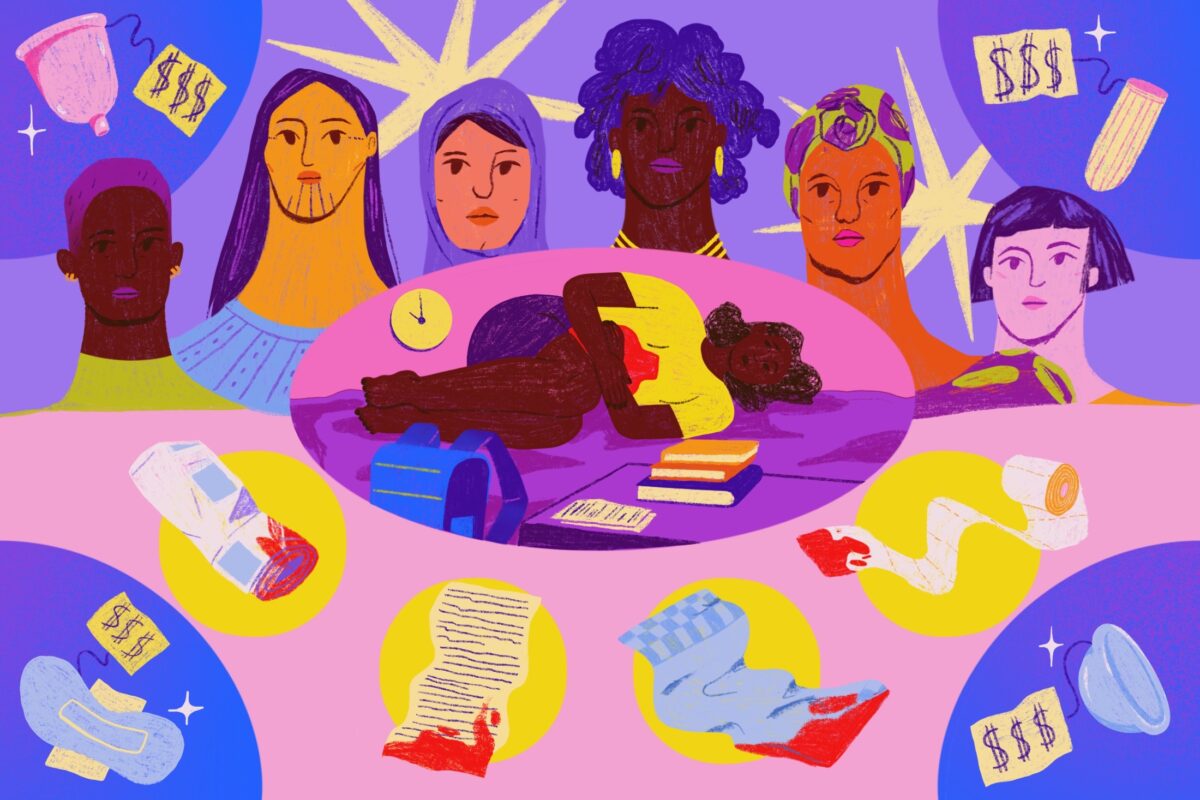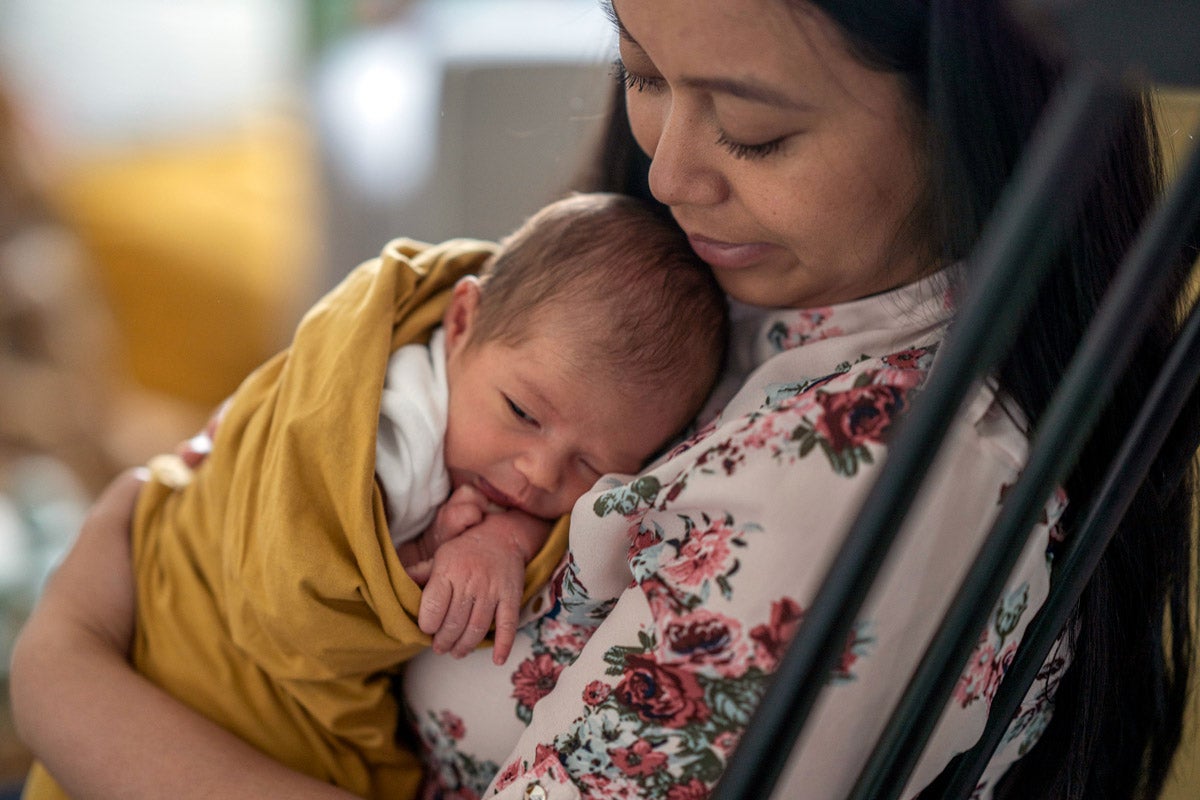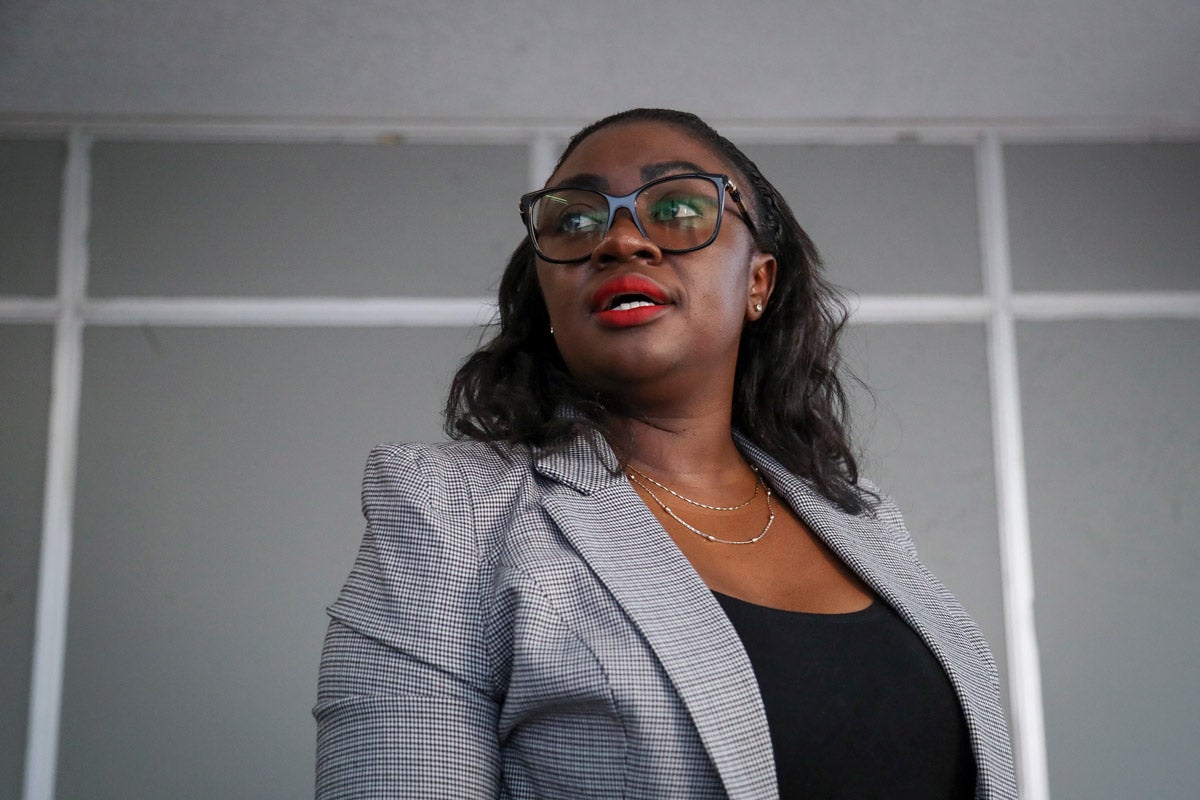
News
“It’s a dignity issue”: Inside the movement tackling period poverty in the U.S.
People who use tampons or pads probably noticed that store shelves sat empty at times over the past couple of years, and prices have gone up. That’s bad news for everyone who needs period products, but especially for people suffering from “period poverty”—the inability to afford period supplies.
But there is a growing movement across the U.S. to make period supplies more affordable and available. Sixteen states and Washington, D.C. require schools to provide these products. Most of these laws have been passed in the last couple of years. Nonprofit organizations like the Alliance for Period Supplies and PERIOD. have sprung up to get supplies into the hands of people who need them.
People don’t always recognize that period poverty is a problem in the U.S., says Jennifer Gaines, program director for the Alliance for Period Supplies. “It makes it harder for those people who are suffering to even ask for help because of the stigma behind not only talking about periods and the need for menstrual products, but also the stigma of being poor.”
Sign up for Harvard Public Health
Delivered to your inbox weekly.
Period poverty affects as many as two in five people, according to a 2021 study by the period product brand U by Kotex, and it’s getting worse. Surveys show period supplies have become less affordable for more people over the past five years. U by Kotex reported a 35 percent increase in people struggling to afford period supplies, and a State of the Period study showed a 25 percent increase.
And prices have only continued to go up. The New York Times reported in February that the loss of cotton crops, due to drought, pushed the price of tampons up 13 percent over the past year, exceeding the overall 6.5 percent rate of inflation in 2022.
Gaines says period poverty is an issue of public and personal health, dignity, and well-being. A 2019 study of low-income women in St. Louis, Missouri, found that 64 percent were unable to afford menstrual hygiene supplies during the previous year. Instead, they used cloth, rags, tissues, toilet paper, paper towels, or children’s diapers.
People who lack supplies sometimes use tampons longer than directed, Gaines says. Doing so can increase the risk of toxic shock syndrome and other vaginal infections. Inability to access period supplies also negatively affects mental health, according to a 2021 BMC Women’s Health study.
People who lack supplies often miss school or work when they have their period. One in four teens has missed class because they didn’t have period products.
And the problem extends beyond health. People who lack supplies often miss school or work when they have their period. One in four teens has missed class because they didn’t have period products, according to the State of the Period study.
The U by Kotex study found that people of color, low-income girls and women, and people living in rural areas all disproportionately experience period poverty. Eva Marie Carney, a member of the Citizen Potawatomi Nation and founder of The Kwek Society, a nonprofit that provides period supplies and member of the Alliance for Period Supplies, sees period poverty as a major challenge for many indigenous people in the U.S. Indigenous people face disproportionately high rates of poverty and are more likely than any other group to live in a rural area.
“The systemic discrimination against indigenous people, starting long ago with the U.S. government forcing many of us into more remote parts of the country, creates more of a poverty issue and more need,” Carney says. “The cost of taking care of your period is much greater than it is if you are in a more populated area.” For example, supplies are significantly more expensive at a gas station than they are at a big-box store, and people may need to travel farther to get them, she adds.
The Kwek Society provides period supplies, including pads, tampons, liners, underwear, fabric “moon time” bags filled with supplies, and puberty educational materials to indigenous students and communities across the country, mostly through partnerships with schools. (“Moon time” refers to menstruation in many indigenous cultures, and volunteers sew the bags.)
The Kwek Society prioritizes schools and organizations with significant indigenous populations, but the period supplies go to anyone who needs them. Carney encourages schools to have students take what they need to use at home, as well as what other family members might need, especially over the summer and during winter break, for example.
If a student is “having a period and not having the supplies needed to manage that period, and then missing school because of it, it only exacerbates educational issues that are already there for indigenous communities,” says Tesia Zientek, a board member of The Kwek Society and a member of the Citizen Potawatomi Nation.
Sadie Jo Smokey-Crews, a member of the Washoe Tribe of Nevada & California, remembers being unable to afford supplies. “When I was in middle school and was having my period, I remember the anxiety of worrying that the paper towel or the cotton balls in my underwear would leak. My dad had lost his job and period products were a luxury,” she says. “I’d try to go a full day without changing the pad. I’d end up resorting to paper towels.” Now, she and her teen daughters make moon time bags for The Kwek Society.
Carney notes, “I think it’s a dignity issue with an impact on your sense of self at a time when you’re very sensitive to how you are perceived.”
Tasheena Mix, a special educational aide at Pyramid Lake High School in Nixon, Nevada and member of the Walker River Paiute Tribe, says her school is majority Native American. Many students depend on free breakfast and lunch at school, but some may not have enough food for the weekends, she explains. “If they don’t have enough food, I know they don’t have the period products they need.”
Mix once used to buy period supplies on her own, to have them ready to give to students who needed them, but now, The Kwek Society provides all the period supplies the school needs.
However, supply continues to be a problem. Carney says that for The Kwek Society’s resupply orders in February, she had planned to order from Amazon, but some of the products were out of stock, and others had purchase limits. Although The Kwek Society hasn’t been tracking price changes, “we’re definitely spending more when we buy products.”
Both Gaines and Carney say the government should be addressing period poverty. “Our network is doing the best that they can to support their local communities, but they can’t do it alone. They need the government’s support in that, by passing legislation to provide more accessible products,” Gaines says.



